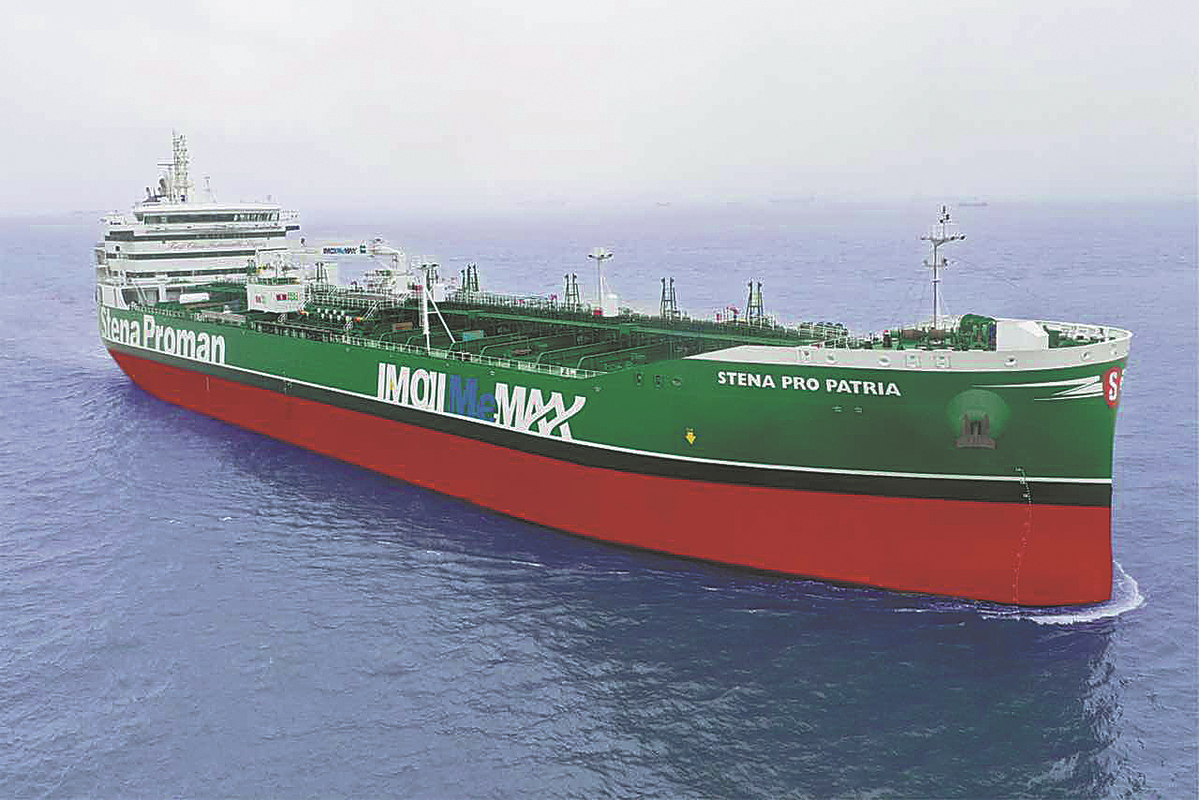Innovative methanol ship delivered to owners
By ZHENG CAIXIONG in Guangzhou | CHINA DAILY | Updated: 2022-07-07 08:59

A new environmentally friendly, energy-saving vessel was delivered in Guangzhou, capital of Guangdong province, in late June, an example of China's leadership in green shipbuilding.
The vessel, which was developed and built by Guangzhou Shipyard International for Proman Stena, a European shipping company, is the first methanol-propelled dual-fuel ship delivered by a Chinese shipyard.
The drive system of the 49,900-metric-ton oil and chemical tanker is a methanol hybrid that can reduce carbon emissions by up to 75 percent, nitrogen emissions by 15 percent and sulfur and particulate emissions by 99 percent.
With a length of 186 meters, a width of 32.2 meters and a depth of 18.35 meters, the vessel has a draft of 11.5 meters and will mainly be used to transport crude oil and chemical products.
Zhou Xuhui, vice-president and senior engineer at GSI, said the green ship is part of a growing trend in global shipping.
"GSI has orders to build 38 green ships," Zhou said, adding that the company also builds ships propelled by liquefied natural gas, or LNG, and electricity.
"GSI is leading the world in the design and construction of green ships."
According to a statement released by the shipbuilder, the yard has orders to build six 49,900-ton methanol dual-fuel tankers for Proman Stena, a joint venture between Sweden's Stena Bulk AB, a leading global oil tanker shipping company, and Switzerland's Proman Shipping.
The two companies signed a contract to build the vessels in November 2019 and construction on the first began in January last year.
In addition to the one already delivered, two more ships have been floated and will soon be completed and delivered. GSI has established long-term cooperation with Stena Bulk AB and has built 13 50,000-ton tankers for the Swedish company since 2002.
The shipbuilder has mastered a series of world-leading conservation, emissions reduction and green technologies, and its dual-fuel ship can operate in any of four fuel modes-fuel oil, fuel hydrate, methanol and methanol hydrate. It is the first example of a hydrate fuel scheme in the shipping sector.
Crews can control combustion to reduce exhaust emissions, making the ship capable of meeting the highest international emission requirements without the need to install an exhaust treatment system, according to the company.
Currently, methanol ships can refuel at around 100 international ports.
Compared to alternative fuels, including LNG, methanol is more convenient to store and transport, and has lower infrastructure costs and significant safety advantages. It is rapidly developing into a marine fuel substitute.
Located on Longxue Island at the mouth of the Pearl River and listed on the Shanghai Stock Exchange, GSI is a subsidiary of China State Shipbuilding Corp.
























